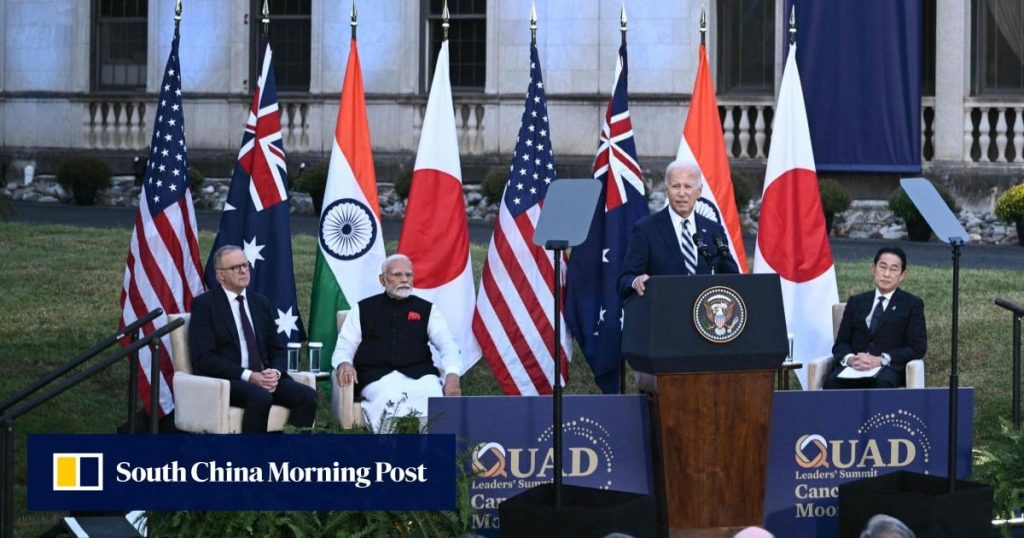Post Views: 145
US tariffs targeting key Quad partners have exposed fault lines within the four-member grouping, raising concerns by analysts that trade tensions could complicate cooperation as China continues to loom large over their shared security interests.
Although Japan and India have edged closer to finalising new trade agreements with the US, the uncertainty hanging over these negotiations may persist during a major summit among Quad members in New Delhi set to take place in September, according to the analysts.
The Quadrilateral Security Dialogue (Quad) – comprising the US, Japan, India and Australia – aims to promote a free, stable and prosperous Indo-Pacific region, where China’s growing influence is a concern for its members and a key reason for the Quad’s re-establishment in 2017.
“The imposition of tariffs by the United States – particularly those affecting key sectors such as steel, semiconductors, and electric vehicles – has undoubtedly caused friction among its closest allies, including Japan,” said Pratnashree Basu, an associate fellow Indo-Pacific at the Observer Research Foundation.
Trump has hit Japan with a 24 per cent tariff on its exports to the US although these so-called “reciprocal” levies and those applicable to other trade partners of Washington – including a 26 per cent tariff on India – have been paused until early July.
A 25 per cent duty on cars – a mainstay of Japan’s export-heavy economy – remains in place while a 10 per cent baseline rate is also applicable to Japan, India, Australia and all other US trade partners.
Source link


